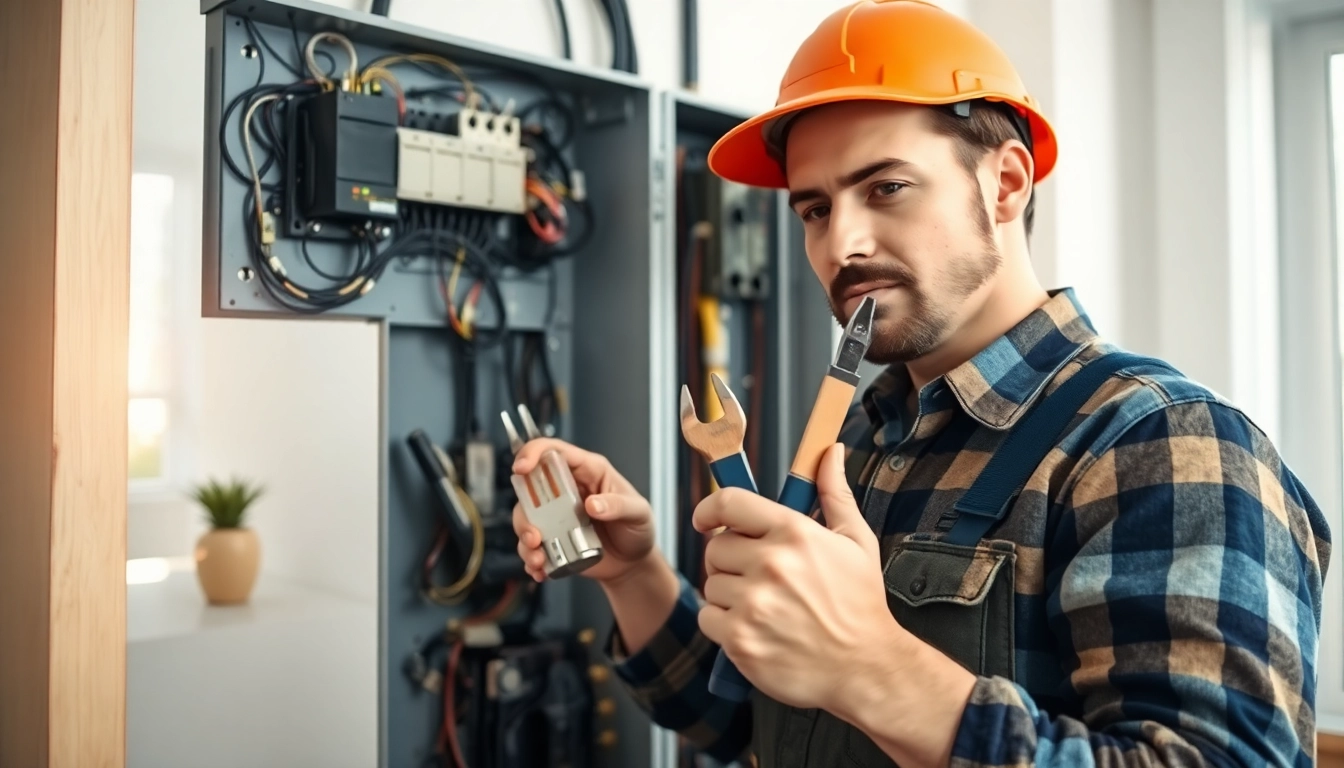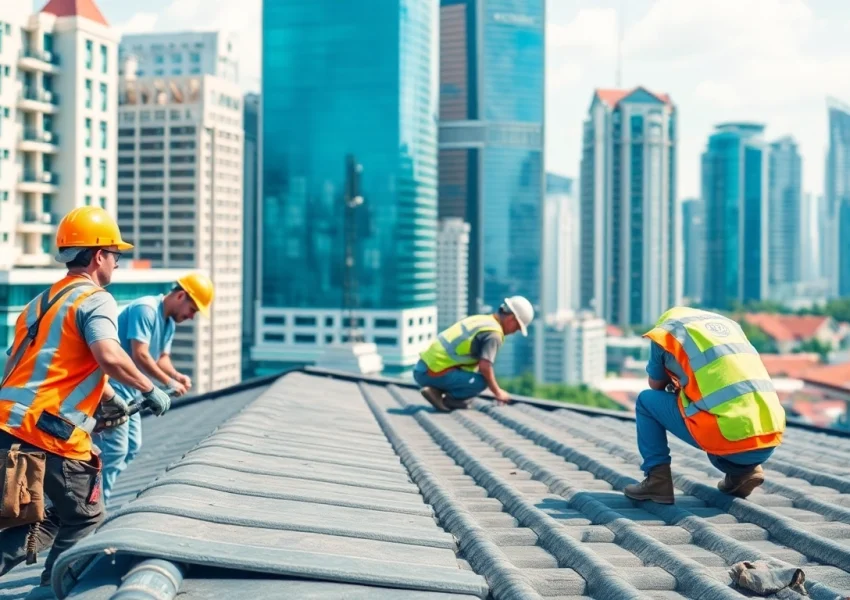Understanding the Need for an Electrical Panel Upgrade
In an era where our homes are inundated with electronic devices, understanding the Electrical Panel Upgrade becomes essential for homeowners. An electrical panel is the core of your home’s electrical system, controlling the distribution of electricity to various parts of your home. Upgrading this panel is imperative for numerous reasons, including safety, capacity, and functionality. Let’s explore the nuances of when and why an electrical panel upgrade may be necessary.
Signs it’s Time for an Electrical Panel Upgrade
Recognizing the signs that indicate the need for an electrical panel upgrade is crucial to maintaining a safe and functional home. Here are some key indicators:
- Frequent Circuit Breaker Tripping: If your circuit breakers are constantly tripping, it suggests that the electrical panel is struggling to meet your household’s power demands.
- Old Age of the Panel: Electrical panels typically last between 25-40 years. If your panel is older than this, it may not handle the increased electrical load effectively.
- Flickering or Dimming Lights: If your lights dim or flicker when you run multiple appliances simultaneously, this is a clear sign that your panel may be overwhelmed.
- Unusual Smells or Discoloration: Any burnt smells or discoloration around the panel indicates heat build-up, which can be a fire hazard.
- Inadequate Circuit Capacity: If your home has been updated with energy-intensive appliances (like EV chargers, central air conditioning, or advanced entertainment systems), your existing panel may need an upgrade to accommodate these changes.
Common Benefits of Upgrading Your Electrical Panel
The decision to upgrade your electrical panel can lead to various benefits:
- Increased Electrical Capacity: A higher amperage panel allows for more electrical power to be distributed throughout your home, accommodating your growing electrical needs comfortably.
- Enhanced Safety: Modern panels are designed with higher safety standards, reducing the risk of electrical fires due to outdated technology.
- Improved Energy Efficiency: A new panel can help regulate power distribution, improving overall energy efficiency and potentially reducing your electricity bill.
- Increased Home Value: Upgrading your electrical panel can enhance the resale value of your home, making it more attractive to potential buyers.
- Future-Proofing Your Home: Preparing your home for future electrical needs is a critical advantage of upgrading the panel.
Safety Considerations Related to Electrical Panel Upgrades
Safety is paramount when it comes to electrical systems. Upgrading your electrical panel is not just about convenience and capacity; it plays a crucial role in ensuring a safe living environment.
Older panels often lack the safety features found in modern panels, such as GFCIs (Ground Fault Circuit Interrupters) and AFCIs (Arc Fault Circuit Interrupters). These features help prevent electric shocks and electrical fires, enhancing the overall safety of your electrical system.
Additionally, hiring a licensed electrician for your upgrade is essential. They will ensure that the upgrade is performed according to current electrical codes and standards, minimizing risks of miswiring or installation errors.
Evaluating Your Current Electrical System
Before embarking on an electrical panel upgrade, it is critical to evaluate your current electrical system. Here’s how to do that effectively:
How to Assess the Capacity of Your Existing Panel
The first step in evaluating your electrical system is understanding the capacity of your existing panel. Most panels come with information that indicates their amperage, which typically ranges from 60 to 200 amps in residential settings. To assess this:
- Locate your electrical panel and open the door. You will see a label or a sticker indicating its amperage.
- Consider your current and projected energy needs. List the major appliances in your home and how many watts each consumes. This will help you determine if your current panel can handle the load.
Identifying Outdated Wiring and Components
While assessing your current electrical system, it’s equally important to inspect the wiring and components connected to your panel:
- Old Wiring: If your home has aluminum wiring or is wired with outdated materials, it may be a good idea to consider both an upgrade of the panel and rewiring of your home.
- Compatibility: Ensure that any new appliances are compatible with your existing electrical system. For example, installing a 240-volt outlet for an electric vehicle charger requires a compatible panel.
- Inspection: Consider hiring a professional electrician for a thorough inspection. They will look for signs of wear and faulty components that could affect the safety and efficiency of your electrical system.
Electric Panel Upgrade and Home Insurance Implications
Upgrading your electrical panel can also have implications for your home insurance. Many insurers require that your home meet certain safety standards, and older electrical systems may not comply. By upgrading, you ensure:
- Lower Insurance Premiums: Many insurance companies may offer lower premiums for homes with updated electrical systems.
- Increased Protection: An upgraded panel reduces the risk of electrical fires, which can significantly lower the likelihood of an insurance claim.
- Greater Peace of Mind: Knowing that your home is up to code with regulations helps mitigate any concerns regarding insurance coverage in the event of electrical issues.
Cost Factors of an Electrical Panel Upgrade
Understanding the financial aspects of an electrical panel upgrade is critical. Costs can vary widely based on various factors, and being aware of them can help you plan your budget effectively.
Breaking Down Upgrade Costs: What to Expect
The cost to upgrade an electrical panel can range from $800 to $4,000, depending on various factors including:
- Panel Size: The cost largely depends on the size of the new panel (e.g., 100 amp vs. 200 amp).
- Labor Costs: Electricians charge between $50 and $120 per hour, affecting the overall labor component of the project.
- Location: Geographic location plays a role in labor costs and permit fees.
- Additional Work Required: Upgrading wiring, adding new circuits, or replacing components can add to the overall cost.
- Permits: Local regulations may require permits, which can add a few hundred dollars to the project.
Financial Incentives for Electrical Panel Upgrades
Though the initial cost may seem intimidating, several financial incentives can alleviate some of the burden:
- Tax Credits: Certain states and associations may offer tax credits for home upgrades that improve energy efficiency, including electrical panel upgrades.
- Rebates: Many local utility companies provide rebates for homeowners who upgrade to energy-efficient appliances or systems.
- Financing Options: Many electricians offer financing plans, allowing you to spread the cost over time.
Comparing DIY vs. Professional Electrical Panel Upgrades
While some homeowners might consider a DIY approach to save costs, upgrading an electrical panel is a complex task best left to professionals:
- Complexity: Upgrading a panel requires specialized knowledge and skill. Mistakes can lead to serious safety hazards.
- Code Compliance: Professional electricians ensure that installations meet local codes, which is crucial for safety and home insurance.
- Time Savings: Professionals can often complete the job much faster than a DIY project, minimizing inconvenience.
- Warranties: Hiring a professional often comes with guarantees on labor and materials.
Finding the Right Electrician for Your Upgrade
Choosing the right electrician is critical for a successful panel upgrade. Here are some guidelines:
What to Look for in an Electrical Contractor
When searching for an electrician, consider the following:
- Licensing and Insurance: Ensure the contractor is licensed and insured to protect against liabilities.
- Experience: Look for a contractor with experience in residential electrical upgrades, particularly with panel replacements.
- References: Ask for references or check reviews from previous clients to gauge their reliability.
Questions to Ask During the Consultation
During the initial consultation, asking the right questions can help clarify the process:
- What is the estimated timeline for the upgrade?
- What are the total costs, including material and labor?
- Will permits be required and obtained by your team?
- Do you provide warranties for your work?
- How do you handle unexpected issues during the upgrade?
Getting Estimates for Your Electrical Panel Upgrade
It’s a good practice to obtain multiple estimates from different electricians. This not only gives you an idea of the going rates but also allows you to compare and contrast the services offered.
When reviewing quotes, take note of all the items included, such as labor, materials, and permit fees to ensure you’re making a fair comparison.
After the Electrical Panel Upgrade: Maintenance & Monitoring
Upgrading your electrical panel is just the beginning. Post-upgrade maintenance and monitoring are necessary to ensure optimal performance:
Essential Maintenance Practices for a Safe Electrical System
To prolong the life of your new electrical panel and prevent issues, consider implementing these maintenance practices:
- Regular Inspections: Schedule periodic inspections with a licensed electrician to check for wear and potential issues.
- Circuit Checks: Do a visual check of the circuit breakers and connections for signs of wear, burns, or corrosion.
- Keep it Clean: Dust and debris can accumulate in the panel, so keep the area clean but ensure the panel is not tampered with.
Upgrading vs. Repairing: When to Choose Each Option
Understanding whether to repair or upgrade your panel can save you time and money:
- Repair: If your panel is relatively new and only has minor issues, a repair may be sufficient. Issues such as tripped breakers may stem from minor faults that a repair can fix.
- Upgrade: If your panel is outdated, consistently has issues, or cannot support your current energy demands, an upgrade is warranted.
Monitoring Your System for Optimal Performance
Once the upgrade is completed, it’s important to remain vigilant:
- Check for unusual noises or smells from the panel.
- Monitor your energy bills for unexpected increases, which may indicate a wiring issue.
- Ensure that any new appliances you install are compatible with your upgraded panel.






